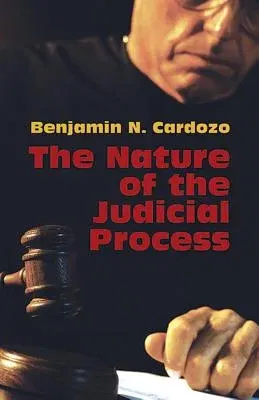A distinguished jurist provides insights into the judicial role by
asking and answering the question, What is it that I do when I decide a
case? In this legal classic, Benjamin N. Cardozo -- an Associate Supreme
Court Justice of the United States from 1932-38 -- explains a judge's
conscious and unconscious decision-making processes.
Cardozo handed down opinions that stressed the necessity for the law to
adapt to the realities and needs of contemporary life. Famous for his
convincing and lucid prose, he offers insights that remain relevant to a
modern view of American jurisprudence. In simple, understandable
language, he discusses the ways that rulings are guided and shaped by
information, precedent and custom, and standards of justice and
morals.
Four of Cardozo's lectures appear here, bookended by an introduction and
conclusion. They explore a variety of approaches to the judicial
process: the method of philosophy; the methods of history, tradition,
and sociology; the method of sociology and the judge as a legislator;
and adherence to precedent and the subconscious element in the judicial
process. Ideal for law students as well as anyone interested in legal
theory, this volume offers a rare look inside the mind of a great
jurist.

